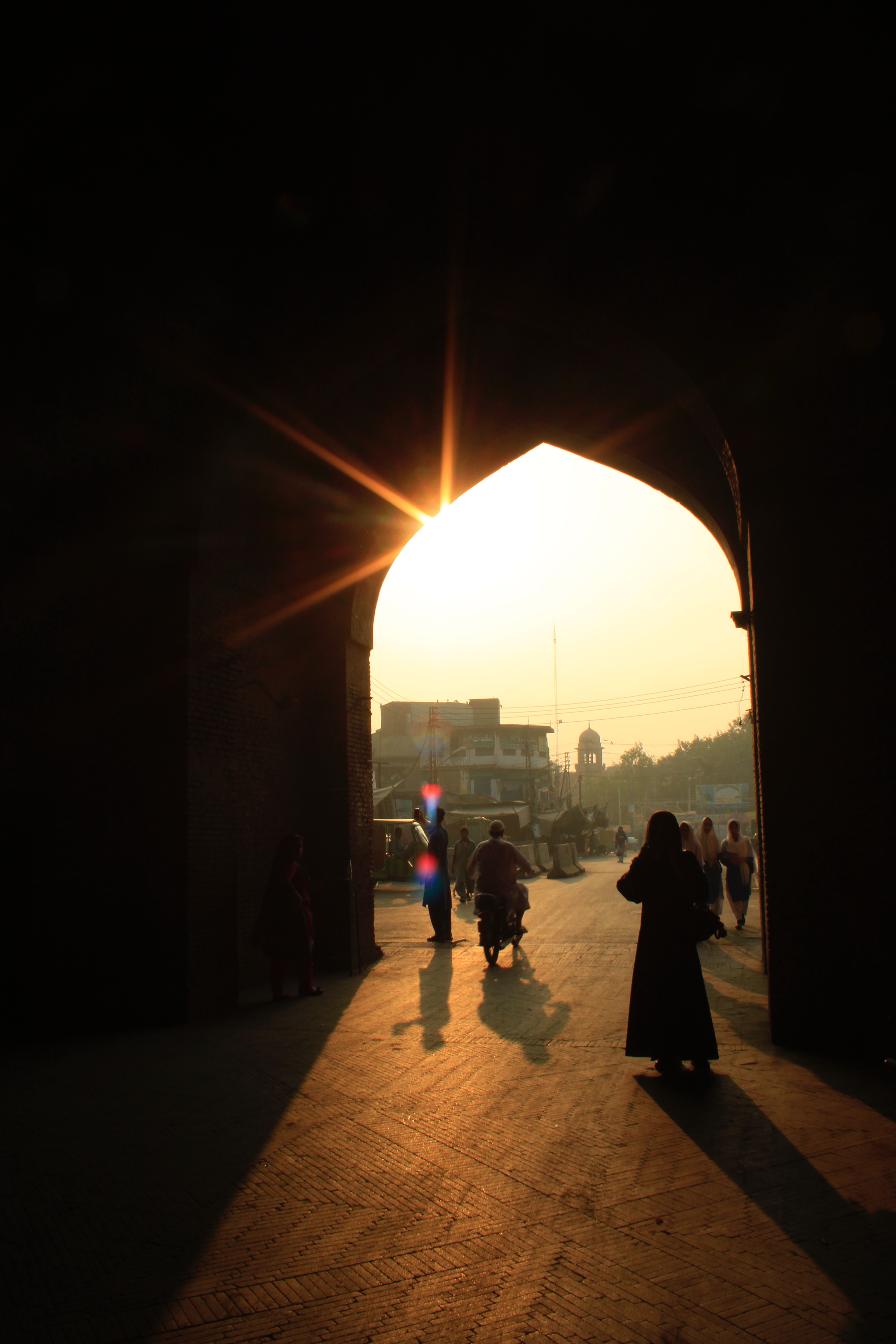DPRU Q&As: Dr Qadeer Alam, Assistant Inspector General of Prisons, Punjab, Pakistan
Posted
Time to read
In this instalment of the DPRU's Q&A series with death penalty experts from around the world, Dr Qadeer Alam, the Assistant Inspector General of Prisons in Punjab, Pakistan, tells DPRU Research Officer Jocelyn Hutton about his work advocating for prison standards for death penalty prisoners and about public opinion on the death penalty in Pakistan.
Can you tell us a little bit about what you do?
Since 2018, I have been working as Assistant Inspector General of Prisons in Punjab, Pakistan. I represent the Inspector General of Prisons and the Home Secretary in the High Courts and the Supreme Court of Pakistan, and help to draft rules and polices on prison governance. I am also a member of the Provincial Parole Board, which determines parole eligibility and recommends cases to the provincial cabinet for release. In 2019, the Provincial Committee introduced new procedures to scrutinize mercy petitions filed by death row prisoners. As a member of the committee, I help prepare petitions in light of Supreme Court judgments, for example on grounds of insanity or juvenility, and make recommendations to the President. The Committee has played a significant role in streamlining the submission of mercy petitions.
What is public opinion on the death penalty in Pakistan?
As far as I am aware, there have not been any comprehensive independent surveys of public opinion on the death penalty in Pakistan. However, a 2012 poll by Gallup Pakistan found that 81% of Pakistanis are in favour of the death penalty. The majority of public support for the death penalty is due to socio-religious factors. The idea of rebalancing family honour and the impulse for revenge are embedded into the social fabric of Pakistan. Furthermore, a large proportion of politicians and lawyers support public executions as well, so it is very difficult to advocate for any changes.

Do you think that Sharia mandates the death penalty?
Sharia comprises both the Quran and the Sunnah. The holy Quran is the primary source of Islamic jurisprudence. There are only three capital offences in the Quran itself: premeditated murder (qatle amad), spreading mischief on earth (fasad fi al ardh) and war against God. Early Muslim jurists also categorised adultery and apostasy as capital offences but for these the legitimacy of the death sentence under Sharia should be reconsidered as it is not prescribed by the Quran. Instead, the Quran prescribes 100 lashes as punishment for adultery and divine judgment in the afterlife for apostasy.
Both the Quran and the Sunnah state that the death penalty must not be invoked in an arbitrary or capricious manner or in violation of the principle of equality and due process. The Quran states: “take not life, which God has made sacred, except by way of justice and law”[i]. And even though it states that those who commit premeditated murder can be punished with the death penalty, it also denounces the killing of one person as tantamount to the killing of all people:
If anyone kills a person—unless it is for murder or for spreading mischief in the land—it would be as if he killed all people. And if anyone saves a life, it would be as if he saved the life of all people.[ii]
That is why the Islamic criminal justice system exhibits concrete concerns over the authenticity of evidence and the legality of pre-trial investigations. The majority of contemporary Muslim jurists support principles and techniques which seek to avoid hudood and qisas penalties[iii] through raising any possible doubts (shubhat) in order to save the innocent.
How has Pakistan incorporated Sharia law into its death penalty legislation?
In 1979, then President General Muhammad Zia-ul-Haq enacted the Hudood Ordinances as part of the Islamisation of the legal system of Pakistan. These laws prescribe the punishment of death by stoning for several offences, although they can be difficult to implement due to the stringent evidentiary requirements. They were amended in part by the Protection of Women Act 2006, however, they still allow for the death penalty for offences which are beyond what the Quran strictly allows. Pakistan still has no formal law prohibiting apostasy but its blasphemy laws, including section 295C of the Pakistan Penal Code,[iv] allow for anyone accused of defiling the name of the Prophet Muhammad to be executed and serve as way to suppress those who dissent from Islam in any way. These laws are often used against religious minorities, many times to settle personal scores.
The Constitution of Pakistan also empowers the Federal Shariat Court to examine and decide whether any law is repugnant to Islam, under Article 203D.[v] This affords the court wide-ranging powers to amend legislation in line with Islamic principles. However, this can also be used in order to implement a more hard-line version of Islamic jurisprudence, rather than to bring it more in line with the principles outlined above. For example, in the case of Muhammad Ismail Qureshi, the court declared that the law allowing life imprisonment as an alternative punishment to the death penalty under section 295C of the Penal Code was repugnant to the injunctions of Islam and mandated that the alternative of life imprisonment be deleted.[vi] This was confirmed by both the National Assembly and the Senate in 1992, paving the way for increased imposition of death sentences in blasphemy cases.
How common is it for those sentenced to death to be pardoned or have their sentence commuted?
The President of Pakistan is empowered to pardon or commute any sentence, including death sentences, under Article 45 of the Constitution. However, the President seldom exercises this power. The Supreme Court of Pakistan in its appellate jurisdiction can also commute death sentences to life imprisonment, but unlike the Indian Supreme Court, rarely commutes death sentences on the grounds of time spent on death row or physical hardships.
What would you like to see change in the application of the death penalty in Pakistan?
Most of the prisoners on death row in Pakistan are from disadvantaged backgrounds and cannot afford to hire legal representatives. The Constitution and the Code of Criminal Procedure,[vii] make provision for the right to legal representation, but the state system for legal aid is scattered and not sufficiently comprehensive. Furthermore, the fees the government provides are not high enough to attract lawyers with the requisite experience and competency for death penalty cases and there simply aren’t enough lawyers with such experience to assist those facing capital charges.
I would also like to see a mechanism incorporated to assess and take into account the mental health of prisoners on death row. I would like to see more training for prison staff on mental health issues and amendments made to the Mental Health Ordinance 2001 and the subsequent Prison Rules for compassionate treatment of those with mental health problems. While the government’s placing of psychologists in Punjab prisons is appreciated, we still do not have any psychiatrists working in the jails.
Finally, I would like to see those offences which do not meet the threshold of ‘most serious crimes’ under the International Covenant on Civil and Political Rights (ICCPR) - which Pakistan ratified in 2010 but has yet to fully implement - removed from the scope of the death penalty in Pakistan in order to bring Pakistan in line with international law.
 |
Dr Qadeer Alam is the Assistant Inspector General of Prisons in Punjab, Pakistan. He completed his doctorate under William Schabas and Nadia Bernaz at Middlesex University. He has worked as a Corrections Mentor with the UN Mission to Liberia from 2009-2011 and as Superintendent Prisons (Governor) in different jails across Punjab. |
[i] Quran 6:151.
[ii] Quran 5:32.
[iii] Hudood crimes are crimes against God, and are considered the most serious offences under sharia law, for which punishments are prescribed in the Quran, This includes banditry and adultery. Qesas crimes refers to the retaliatory principle of “an eye for an eye” and includes homicide and the infliction of physical injury. See: Naima Asif, ‘An introduction to sharia law and the death penalty’ (Oxford DPRU Blog, 26 January 2021).
[iv] Pakistan Penal Code (Act XLV of 1860), section 295C.
[v] Constitution of Pakistan, art 203D.
[vi] Muhammad Ismail Qureshi v Pakistan (1990) PLD 1991 FSC 10, para 67.
[vii] Code of Criminal Procedure 1898, section 340.
Share
